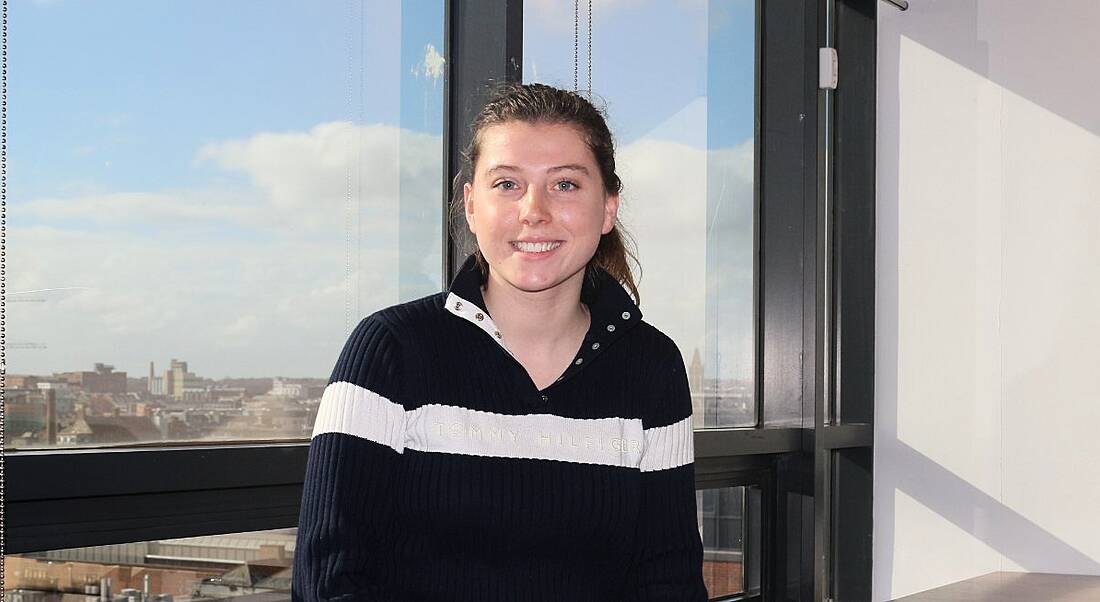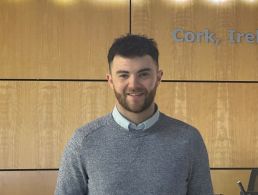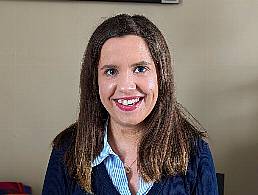While many interns are often disappointed to find that they are relegated to fetching coffee, EY intern Sarah Murray is happy to report that her skills were utilised at the firm.
Internships suffer from a massive image problem. The concept, an excellent idea in principle, has since become tarnished by the various employers who exploit interns as sources of free, menial labour.
Coupled with a long, arduous recession that raged for years, it’s understandable that an intern may feel trepidation when undertaking an internship.
Sarah Murray, a business and French student at the University of Limerick, wanted to do her research before choosing a firm to cut her teeth with, and was delighted to hear that EY wasn’t the type of company that would relegate her to coffee runs and document printing. Instead, she was allowed to flourish.
We spoke to her about her experience interning for EY and the type of work she was tasked with while there.
What are you studying in college?
I am studying business and French at the University of Limerick, and majoring in accounting and finance.
What drew you to EY when you were seeking an internship?
I had heard from other graduates and lecturers that EY was a great firm to work for. It isn’t a company that will hire interns and have them print and do coffee runs all day every day.
On my fifth day on the job, I was sent out to a client site and sent to speak to a client by myself. My colleagues were confident that I could do it and they gave me all the background information necessary to complete the job. It was daunting at first, but a great experience.
What expectations did you have before you began your internship?
My expectations before my internship were that I would familiarise myself with the corporate office lifestyle.
I expected to gain knowledge that only an internship could provide me with. There is a substantial difference between learning things in college and actually seeing it in the workplace.
I was eager to bring what I had learned throughout college into my internship but to also further my understanding with practical experience.
What duties and responsibilities were you given initially?
Initially, I was given admin roles, so preparing emails and information requests to send out to our clients.
Essentially, I was organising the initial set-up of an engagement in order for my seniors to focus on the technical side of the tax work.
Did the scope of your work change as the internship progressed?
Having completed two summer internships, I can see now that the scope of my work on a longer work placement (eight months rather than three months) has progressed rapidly.
I went from preparing the administration side of things for the other grads to completing technical tax work in the space of a few weeks.
I was brought to meetings at the beginning of engagements and given a proper role in the compliance work.
Even now, three months in, my scope of work is constantly changing. As well as still completing the administrative side of things, I am being assigned entities that are getting more complex each day.
Can you describe a typical day in your role?
A typical day for me on the administration side of things would be putting fees into the system and following up with my seniors on different tasks they may have me doing.
These tasks range from letters to clients to setting up folders or online libraries, to drafting emails and information requests for clients.
On the tax technical side, I have a client list and deadlines that I must meet. At the moment, I am involved in four or five clients from start to finish.
I have a different person to report to for each project, which is interesting as I am constantly learning new things from everyone.
I deal mainly with reviewing companies’ trial balances and inputting various figures into our tax software in order to generate their tax return for the year. It is not as straightforward as it seems as, more often than not, we have to query certain things with the client.
What key things have you learned during this internship?
From this internship, I have learned a lot more in terms of technical tax knowledge. Being in the corporation tax department without having studied any tax modules in college was daunting at first.
However, I feel now that I have learned more about the tax rules, regulations and legislation than I ever would have in college.
The amazing thing about internships is, you pick little things up every day and when you look back on your time, you realised how much you have actually learned.
Has this internship made you feel as though you’re on the right career path?
Yes, I am interested in doing my accounting and tax exams. Initially, when I was in the assurance (audit) department, I was a little unsure whether I could see myself as a graduate in audit.
Now, having experienced both personal income tax and corporation tax, I feel I am on the right career path. I like the process involved in completing a company’s tax compliance. To me, it is logical and methodical.
Do you feel more prepared for working life following your internship?
Yes. Not only does an internship prepare you for the type of work you’re going to be doing, but it also prepares you for the formality and the business working environment.
Being prepared for working life in terms of how to act and behave around colleagues doesn’t seem daunting now that I have been doing it throughout my internships.
Why should someone take up an internship at EY?
I would highly recommend EY as a company to do an internship at as they really do give you the best experience possible. You are treated as a proper employee and given relevant work, tasks and experience.
As well as that, being an intern in EY allows you to get involved in a wealth of other things, such as CSR days, being a buddy to incoming interns, speaking on podcasts, representing the firm on student recruitment teams and getting involved in social media takeovers.
There are so many opportunities in this firm if you are willing to participate.




